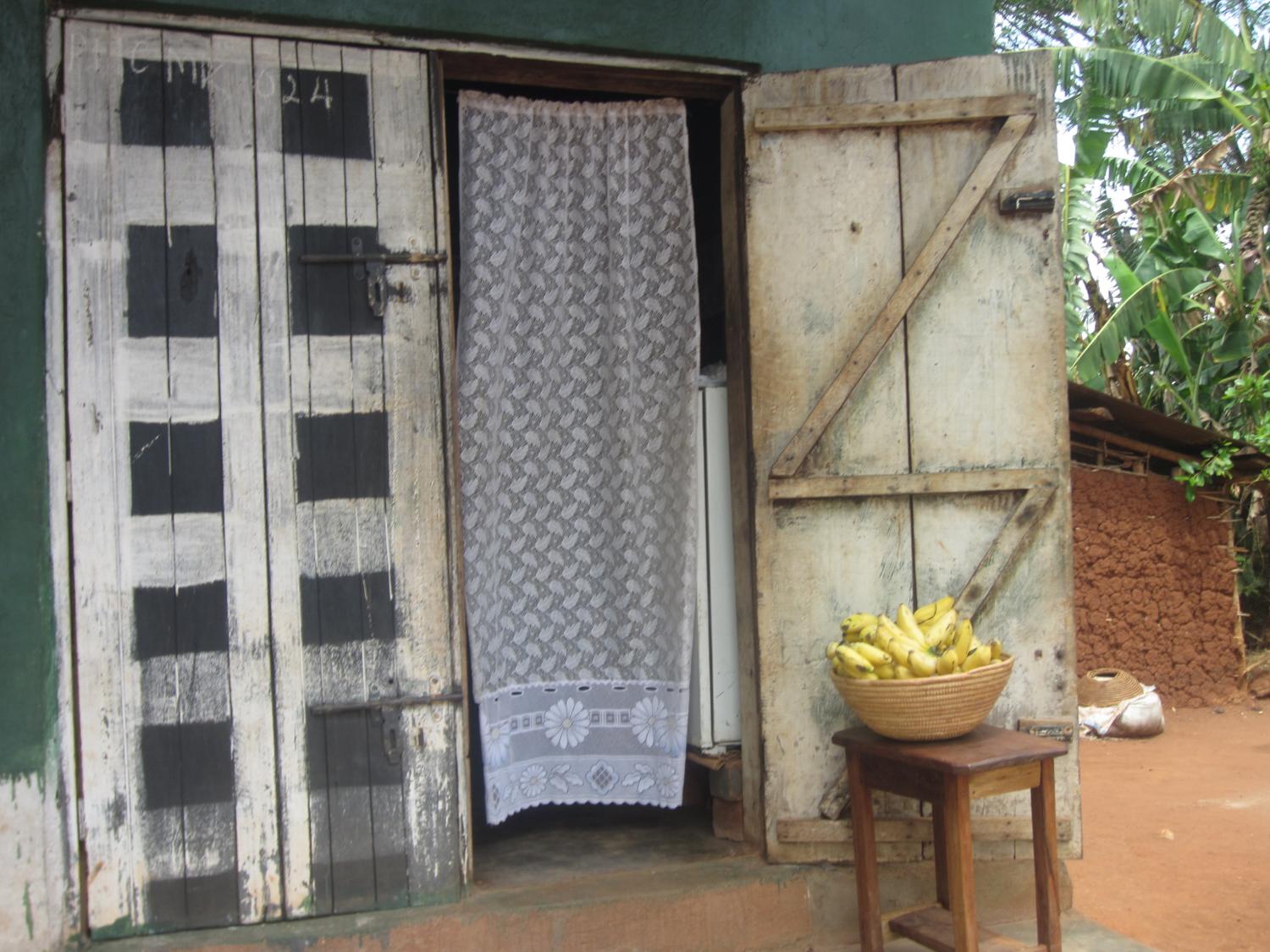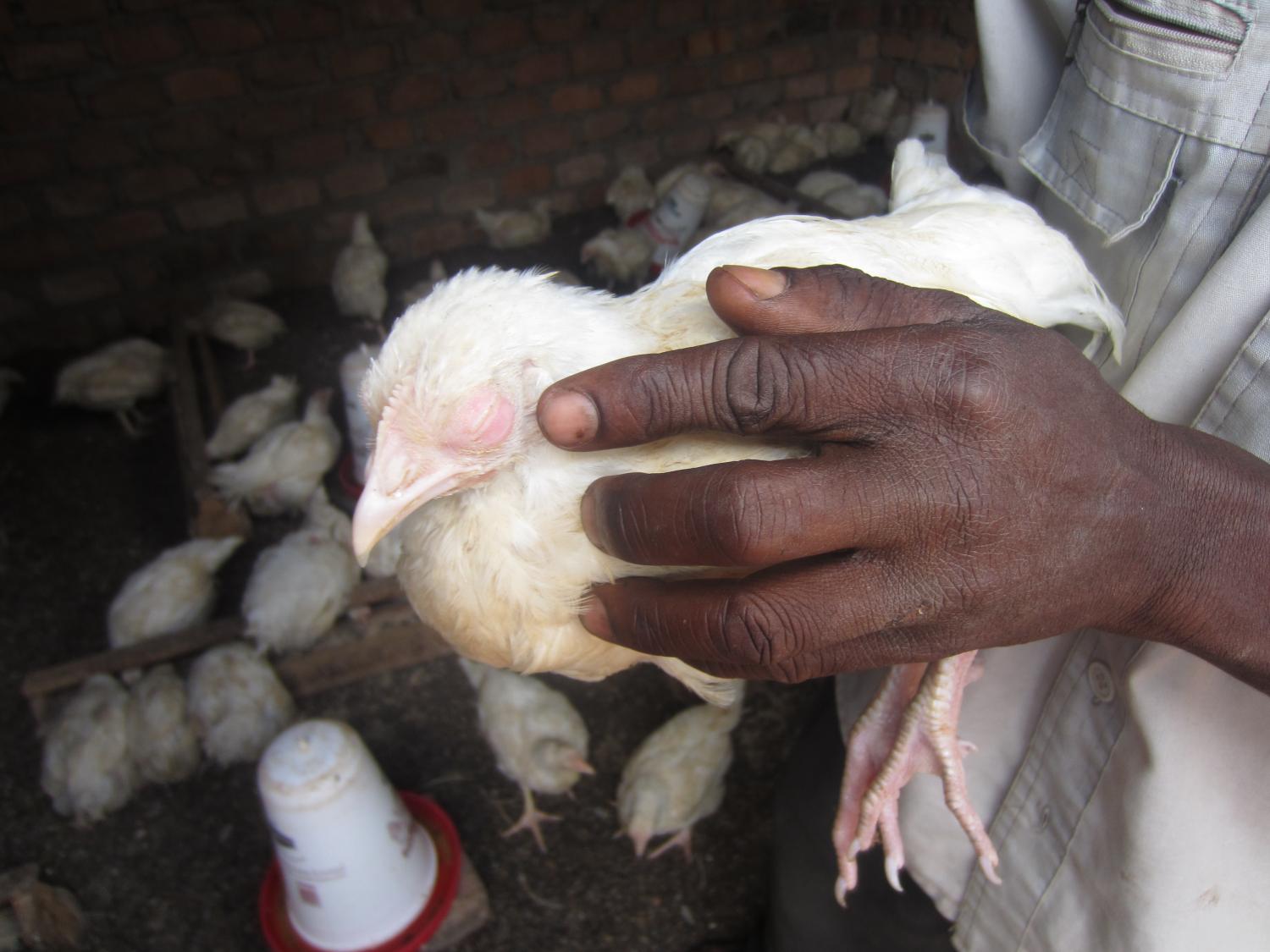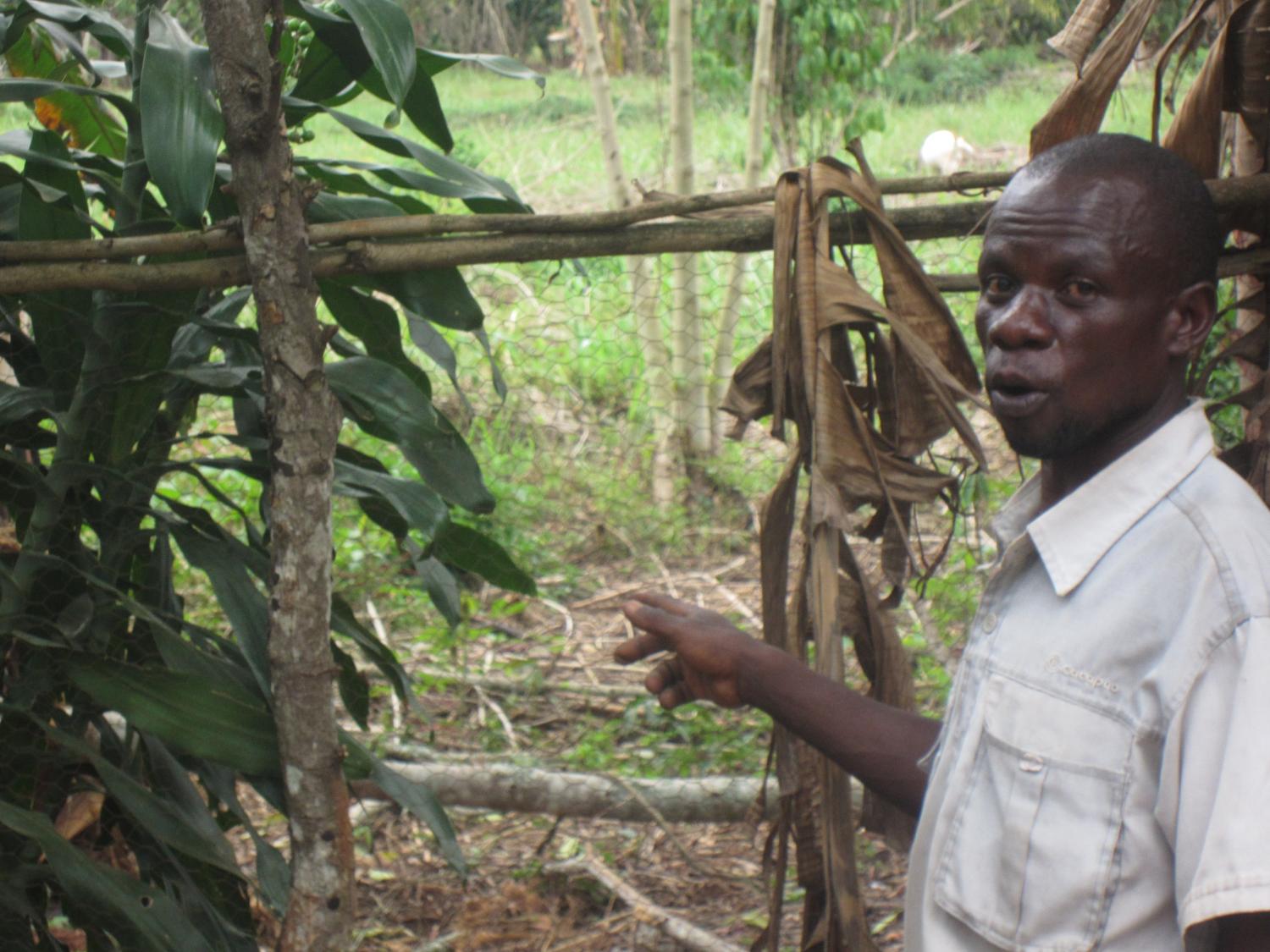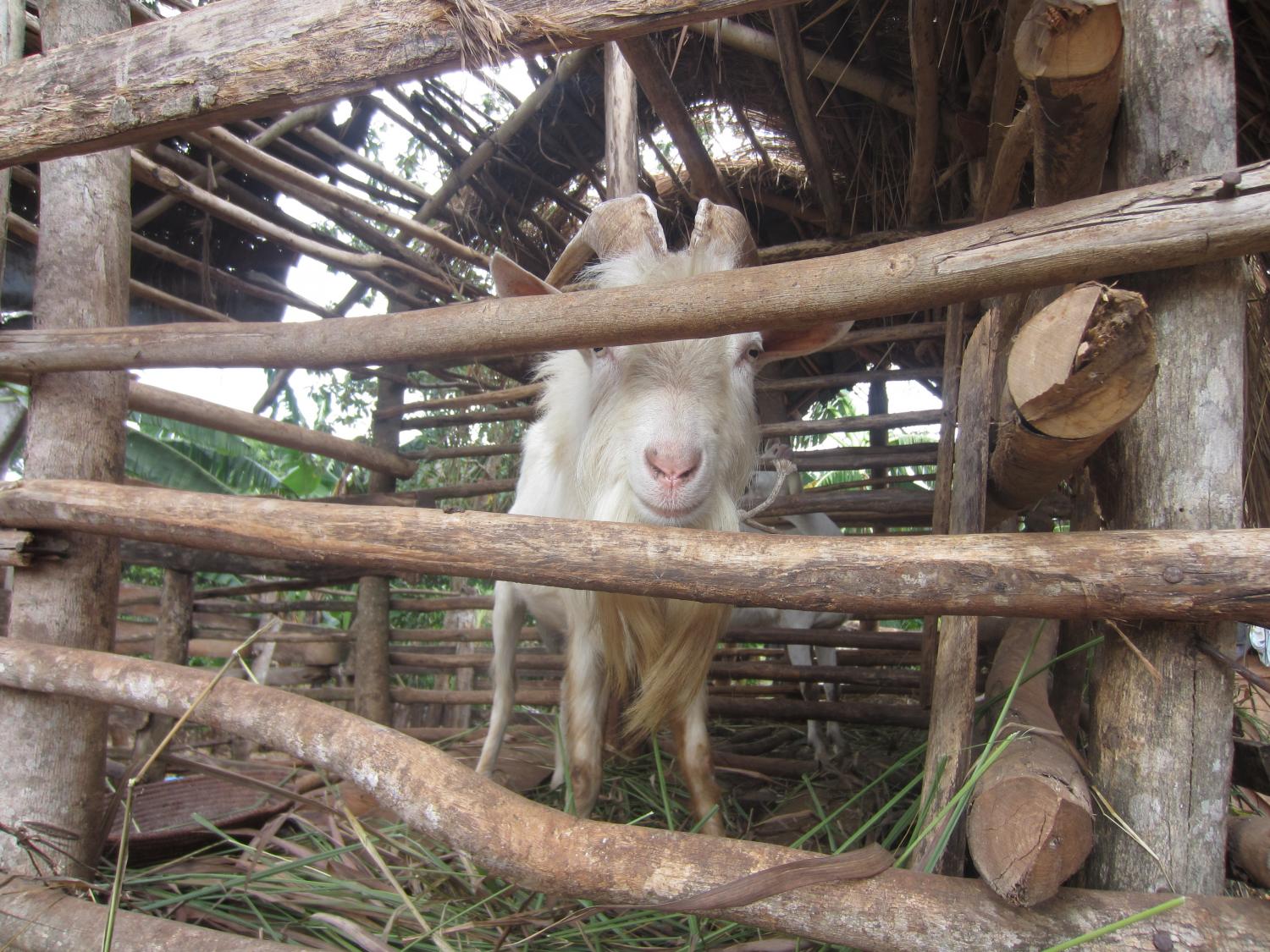
I traveled north, away from Kampala, towards a small town called Luwero. After the wall to wall congestion of the city, it was a relief to finally have an open stretch of road with green trees and grassy fields to either side. I was looking forward to meeting Haruna, a man who had borrowed from BRAC Uganda in the fall of 2014 to revive his sagging poultry business. Six months later, my task was to see how Haruna and his chickens were faring.
I pulled up to a modest home with a bicycle leaning on a tree next to a bench. A small man with a huge smile stepped out from behind a towel that served as a screen door. Haruna offered a handshake and gestured for me to sit down under the shade of his porch. It was midday in the equatorial sun and I happily obliged.
 Haruna's home where bananas are plentiful
Haruna's home where bananas are plentifulLess than a year ago, Haruna’s fledgling poultry business had been making not quite enough to support him, his wife and four sons. When a disease spread through his poultry house and wiped out half of his birds, it also wiped out half of his income, since he had been counting on selling the birds as they matured. He explained that potential disease is an ongoing challenge in the poultry business.
This is what led Haruna to enroll in BRAC’s Small enterprise program (SEP.) Not only was he able to access a loan when he needed it, but could also take advantage of credit and business training courses. Having that money when he needed it turned everything around. Showing me around the chicken house, his sense of ownership and pride in his chickens was obvious as he leaned over to pick up stray feathers and say hello to his favorite birds.
 Haruna describes the care he gives a bird that needs special treatment
Haruna describes the care he gives a bird that needs special treatmentHaruna radiated confidence and a sense of ease as he told me about the profits his business was beginning to make. He had used his loan proceeds to purchase 500 “Kuroilers,” which are a cross between a local chicken and a “Broiler.” Just like the local breeds, Kuroilers are often kept under a free range system, where the birds are left to scratch for food with no restrictions and very few supplements. Kuroilers also make business sense. They mature faster (4 months vs. 7 months for local chickens), creating a faster return on investment.
 The borders of Haruna’s property that he would like to enclose
The borders of Haruna’s property that he would like to encloseWe continued walking as Haruna showed me around the rest of the property and introduced me to his family and non-feathered friends along the way. He talked about his dream of enclosing his yard with fencing which would give his birds freedom to roam outside of the chicken house, in a real “free range” system. His wife was too shy for photos, but she joined in to talk about growing the business for their sons. They asked me to thank the lenders and to let them know they are working hard to pay off the current loan. Their hope is that in six months time, lenders will be willing to lend for the fencing. I’m passing it on here. “Thanks!”
 A cute and friendly goat welcomes those who visit
A cute and friendly goat welcomes those who visitPREVIOUS ARTICLE
Lourdes’s Dream: To show the world a woman’s worth →NEXT ARTICLE
Pamela’s Dream: Creating hope for HIV-positive women →













